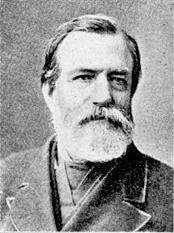Planning worship?
Check out our sister site, ZeteoSearch.org,
for 20+ additional resources related to your search.
- |
User Links
Person Results
Clement of Alexandria

170 - 215 Author of "Shepherd Of Tender Youth" in American Lutheran Hymnal Clemens, Titus Flavins (Clemens Alexandrinus), St. Clement of Alexandria, was born possibly at Athens (although on this point there is no certain information) about A.D. 170. His full name, Titus Flavins Clemens, is given by Eusebius (H. E., vi. 13) and Photius (Cod. Ill), but of his parentage there is no record. Studious, and anxious to satisfy his mind on the highest subjects, he is said to have been a Stoic and Eclectic, and a seeker after truth amongst Greek, Assyrian, Egyptian, and Jewish teachers. He himself enumerates six teachers of eminence under whom he studied the "true tradition of the blessed doctrine of the holy apostles." At Alexandria he came under the teaching of Pantsenus, and embraced Christianity, Pantsenus being at the time the master of the Catechetical School in that city. On the retirement of Pantsenus from the school for missionary work, Clement became its head, cir. 190, and retained the position to 203. His pupils were numerous, and some of them of note, including Origen, and Alexander, afterwards Bishop of Jerusalem. Driven from Alexandria by the persecution under Severus (202-203), he wandered forth, it is not known whither. The last notice wo have of him in history is in a letter of congratulation by his old pupil, Alexander, then Bp. of Cappadocia, to the Church of Antioch, on the appointment of Asclepiades to the bishopric of that city. This letter, dated 211, seems to have been conveyed to Antioch by Clement. Beyond this nothing is known, either concern¬ing his subsequent life or death, although the latter is sometimes dated A.D. 220.
The works of Clement are ten in all. Of these, the only work with which we have to do is The Tutor, in three books. The first book describes the Tutor, who is the Word Himself, the children whom He trains (Christian men and women), and his method of instruction. The second book contains general instructions as to daily life in eating, drinking, furniture, sleep, &c.; and the third, after an inquiry into the nature of true beauty, goes onto condemn extravagance in dress, &c, both in men and women. Appended to this work, in the printed editions, are two poems; the first, "A Hymn of the Saviour), and the second, an address "To the Tutor". The first, beginning is attributed to Clement in those manuscripts in which it is found; but it is supposed by some to be of an earlier date: the second is generally regarded as by a later hand .
The “Hymn of the Saviour," the earliest known Christian hymn, has been translated into English:
The earliest translation is "Shepherd of tender youth.” This is by Dr. H. M. Dexter (q. v.). It was written in 1846, first published in The Congregationalist [of which Dexter was editor], Dec. 21, 1849, and is in extensive use in the United States. In Great Britain it is also given in several collections, including the New Congregational Hymn Book, 1859; Baptist Psalms & Hymns, 1858; the R. T. Society's Collection, &c.
There are also translations not in common use, viz.: (1) "Bridle of colts untamed," by Dr. W. L. Alexander, in the Ante-Nicene Christian Library, vol. iv. p. 343; (2) "Bridle of colts untaught," by Dr. H. Bonar, in The Sunday at Home, 1878, p. 11. (3) Another translation is by the Rev. A. W. Chatfield, in his Songs and Hymns of the Earliest Greek Christian Poets, 1876. Mr. Chatfield, following the Anth. Graeca Car. Christ., 1871, p. 37, begins with the eleventh line: "O Thou, the King of Saints, all-conquering Word." His translation extends to 40 lines.
--Excerpts from John Julian, Dictionary of Hymnology (1907)
Clement of Alexandria
Henry Martyn Dexter

1821 - 1890 Person Name: H. M. Dexter Translator of "Shepherd Of Tender Youth" in American Lutheran Hymnal Dexter, Henry Martyn, D.D., born at Plympton, Mass., Aug. 13, 1821, and educated at Yale College, and Andover. In 1844 he was ordained Pastor of a Congregational Church at Manchester, New Haven. In 1849 he removed to the Berkeley Street Congregational Church, Boston, where he remained until his appointment as Editor of the Congregationalist, in 1867. Dr. Dexter is the translator of “Shepherd of tender youth" [see Clemens, Titus], in common usage in Great Britain and America. [Rev. F. M. Bird, M.A.]
-- John Julian, Dictionary of Hymnology (1907)
Henry Martyn Dexter


 My Starred Hymns
My Starred Hymns


